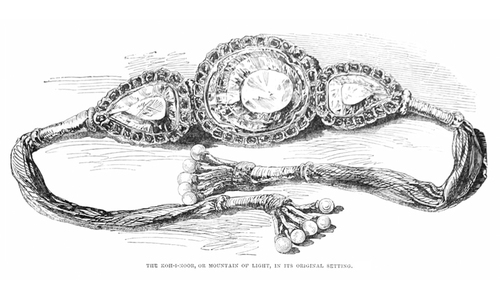Fawad endorses demand for full apology from British govt over empire's role in Jallianwala Bagh massacre

Information Minister Fawad Chaudhry on Thursday endorsed the demand that the British government apologise for the empire's role in the Jallianwala Bagh massacre and the famine of Bengal in the run-up to the 100th anniversary of the massacre.
"Fully endorse the demand that [the] British empire must apologise to the nations of Pakistan, India and Bangladesh on Jallianwala massacre and Bengal famine. These tragedies are the scar on the face of Britain," he tweeted.
The April 13, 1919 Jallianwala Bagh massacre, in which British troops opened fire on thousands of unarmed protesters, remains an enduring scar from British colonial rule in India.
Colonial-era records show about 400 people died in the northern city of Amritsar when soldiers opened fire on men, women and children in an enclosed area, but Indian figures put the toll at closer to 1,000.
Former British prime minister David Cameron described it as "deeply shameful" during a visit in 2013 but also stopped short of an apology.
A ceremony will take place at the site of the massacre on Saturday.
Decades later, some four million Bengalis starved to death in the 1943 famine. Then British prime minister Wintston Churchill had ordered the diversion of food from starving Indian civilians to well-supplied British soldiers and even to top up European stockpiles in Greece and elsewhere. When reminded of the suffering of his Indian victims, his response was that the famine was their own fault for "breeding like rabbits".
Read more: Royal Kohinoor: Why Pakistan should enter the debate but won’t
"Also [the] Koh-i-Noor [diamond] must be returned to Lahore museum where it belongs," Chaudhry added, referring to the 108-carat gem which was once the largest known diamond in the world and is now part of the British royal family's collection.
Explore: Global Apartheid: On the historical superiority of the West
The diamond, which historians say was probably first discovered in India during the Mughal dynasty, is on public display in the Tower of London as part of the late queen's crown. The Koh-i-Noor was presented to Queen Victoria in 1852. Its ownership is disputed and claimed by multiple countries, including India, Iran and Afghanistan.
Chaudhry's tweet comes a day after British Prime Minister Theresa May expressed regret for the Jallianwala massacre, but stopped short of a full apology.
"We deeply regret what happened and the suffering caused," May told the British parliament on Wednesday. Jeremy Corbyn, leader of the main opposition Labour Party, called for "a full, clear and unequivocal apology".
Read more: How colonialism actually worked
UK Foreign Office minister Mark Field, during a debate on the massacre, said: "I have slightly orthodox views on Britain’s colonial past. I feel little reluctant to make apologies for things that have happened in the past," according to a report by The Wire.
He added: "There are also concerns that any government department has, to make about any apology, given that there may well be financial implications to making an apology."
In 2015, Indian politician and writer Shashi Tharoor's argument in support of an Oxford Union debate motion ─ 'This house believes Britain owes reparations to her former colonies' ─ went viral and, according to the BBC, has found favour among Indians.
Find out more: The dark side of Winston Churchill’s legacy no one should forget












































